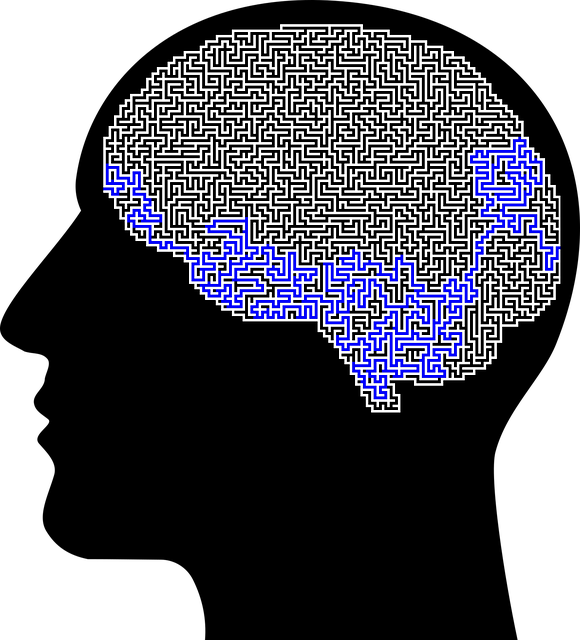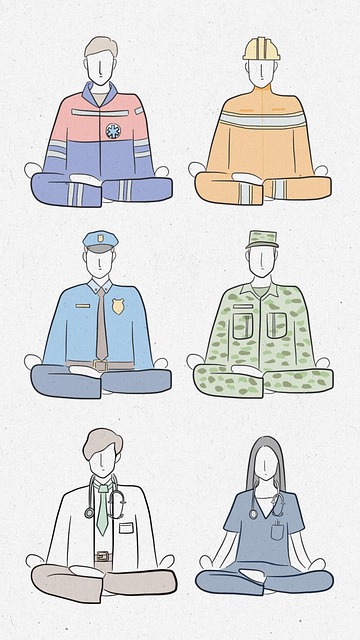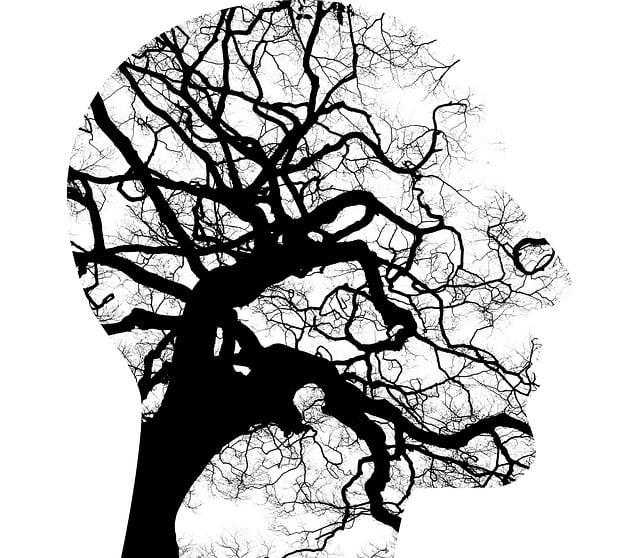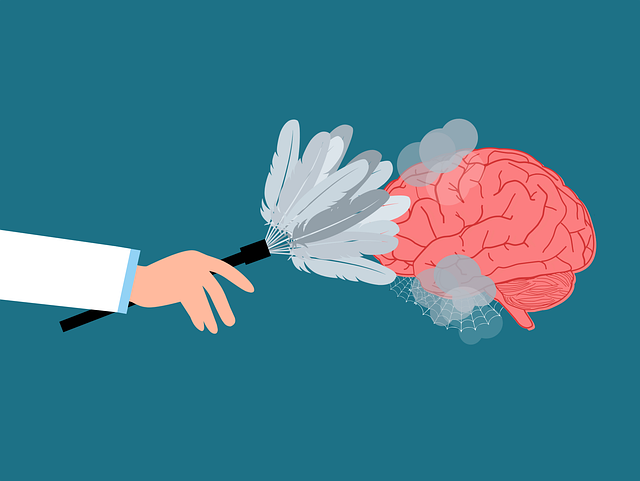Arvada Domestic Violence Therapy enhances community support through tailored outreach programs addressing crisis, trauma, and social skills. Their strategic initiatives break down barriers, raise awareness, and create a safer environment by partnering with local organizations, employing conflict resolution techniques, and offering mental wellness coaching. These programs consider cultural diversity and unique challenges, integrating holistic practices like journaling and mindfulness to promote healing, empowerment, and long-term positive behavioral changes, ensuring accessibility for diverse communities. Measurement of success includes both immediate outcomes and sustained improvements in participants' lives through evidence-based adjustments based on data collection and analysis.
Community outreach programs play a pivotal role in addressing critical social issues, especially within Arvada Domestic Violence Therapy’s focus area. This article delves into the strategic implementation of such initiatives, highlighting their potential to transform lives. We explore key aspects, from understanding community dynamics and identifying at-risk groups in Arvada, to designing engaging programs and overcoming challenges. Furthermore, it offers insights on measuring success, ensuring impactful interventions that resonate with local needs, fostering a safer, more supportive environment for all.
- Understanding Community Outreach: Its Role and Benefits for Arvada Domestic Violence Therapy
- Identifying Target Groups: Reaching at-risk populations in Arvada
- Designing Effective Programs: Strategies for impactful outreach
- Overcoming Challenges: Practical solutions for implementation barriers
- Measuring Success and Impact: Evaluating the effectiveness of community outreach programs
Understanding Community Outreach: Its Role and Benefits for Arvada Domestic Violence Therapy

Community outreach programs play a pivotal role in expanding the reach and impact of Arvada Domestic Violence Therapy’s services. These initiatives allow for direct engagement with individuals and families facing various challenges, offering much-needed support and resources. By implementing targeted outreach strategies, the therapy center can ensure that those experiencing domestic violence, trauma, or struggling with social skills have access to essential services.
Outreach programs empower Arvada Domestic Violence Therapy to provide crisis intervention guidance, trauma support services, and social skills training tailored to the unique needs of different communities. This proactive approach breaks down barriers and increases awareness about available help. Ultimately, it fosters a safer and more supportive environment for individuals seeking therapy and empowers them to take control of their healing journey.
Identifying Target Groups: Reaching at-risk populations in Arvada

In Arvada, identifying target groups for community outreach programs requires a nuanced understanding of the city’s unique needs. At-risk populations, such as those affected by domestic violence, often go unnoticed or unserved due to the sensitive nature of their situations. Effective outreach demands a quiet, yet persistent approach to connect with individuals and families grappling with interpersonal conflicts. By partnering with local organizations and leveraging resources like Arvada Domestic Violence Therapy, community leaders can begin to address these issues effectively.
Focusing on at-risk youth and adults who might be hesitant to seek help, programs should incorporate conflict resolution techniques and mental wellness coaching as core components. These initiatives aim not only to provide immediate support but also to cultivate long-term resilience by teaching stress reduction methods. The development of such programs must consider the diverse cultural backgrounds and unique challenges faced by Arvada’s residents, ensuring that services are accessible and tailored to meet their specific needs.
Designing Effective Programs: Strategies for impactful outreach

Designing impactful community outreach programs requires a strategic approach that goes beyond surface-level engagement. At Arvada Domestic Violence Therapy, we understand that addressing societal issues like domestic violence necessitates holistic interventions. One effective strategy is integrating mental wellness practices into program frameworks. Encouraging participants to engage in journaling exercises or self-care routines can provide valuable tools for managing anxiety and cultivating resilience. This not only enhances individual well-being but also fosters a sense of community, where support and coping mechanisms are shared openly.
Furthermore, tailoring these programs to meet diverse needs is crucial. Offering guidance on various self-care practices allows individuals to explore and adopt methods that resonate with them personally. Whether it’s through mindfulness exercises, creative outlets, or structured therapy sessions, adaptable programming ensures inclusivity and encourages sustained participation. By combining these strategies, community outreach initiatives can be more effectively designed to promote healing, empowerment, and overall mental wellness within the reach of all individuals, including those seeking domestic violence therapy in Arvada.
Overcoming Challenges: Practical solutions for implementation barriers

Implementing community outreach programs can present unique challenges, but with strategic planning and the right resources, these obstacles can be overcome. One key area to focus on is accessibility, especially when addressing sensitive issues like domestic violence. Organizations like Arvada Domestic Violence Therapy have successfully navigated this by employing flexible service models. They offer personalized support through counseling sessions tailored to individual needs, ensuring help reaches those who might otherwise struggle to access services. This approach not only overcomes geographical barriers but also caters to diverse cultural and personal circumstances.
Additionally, fostering community engagement is essential. Encouraging by-and-large participation requires a multi-faceted strategy that includes educational workshops on self-care routine development for better mental health, mood management, and stress reduction methods. By empowering individuals with practical tools for coping, these programs can build resilience and create a network of support within the community. Such initiatives ensure sustainability and encourage long-term positive behavioral changes.
Measuring Success and Impact: Evaluating the effectiveness of community outreach programs

Measuring success and impact is a vital aspect of community outreach programs, especially when addressing sensitive issues such as domestic violence. Organizations like Arvada Domestic Violence Therapy employ various evaluation methods to assess the effectiveness of their initiatives. This involves tracking key performance indicators (KPIs) specific to each program goal. For instance, the number of individuals attending support groups or workshops, and subsequent feedback through surveys, can gauge satisfaction levels and the perceived benefits of participation.
Furthermore, measuring success extends beyond immediate outcomes. It includes observing long-term changes in participants’ lives, such as improved stress reduction methods, enhanced mental wellness, and developed social skills training. By collecting and analyzing data at different stages of the program, organizations can identify what works best and make informed adjustments to maximize their impact on the community.
Implementing community outreach programs, such as those tailored by Arvada Domestic Violence Therapy, can significantly enhance access to support services for at-risk populations. By understanding the specific needs and challenges faced by these communities, effectively designing and targeting outreach strategies, and continuously measuring success, organizations like Arvada Domestic Violence Therapy can create lasting positive change. Overcoming implementation barriers through practical solutions ensures that resources reach those who need them most, fostering a safer and more supportive environment for all.














